CLICK HERE FOR RESEARCH PRESENTATION (or see shorter version posted below) https://youtu.be/B_ehqHQOBO0
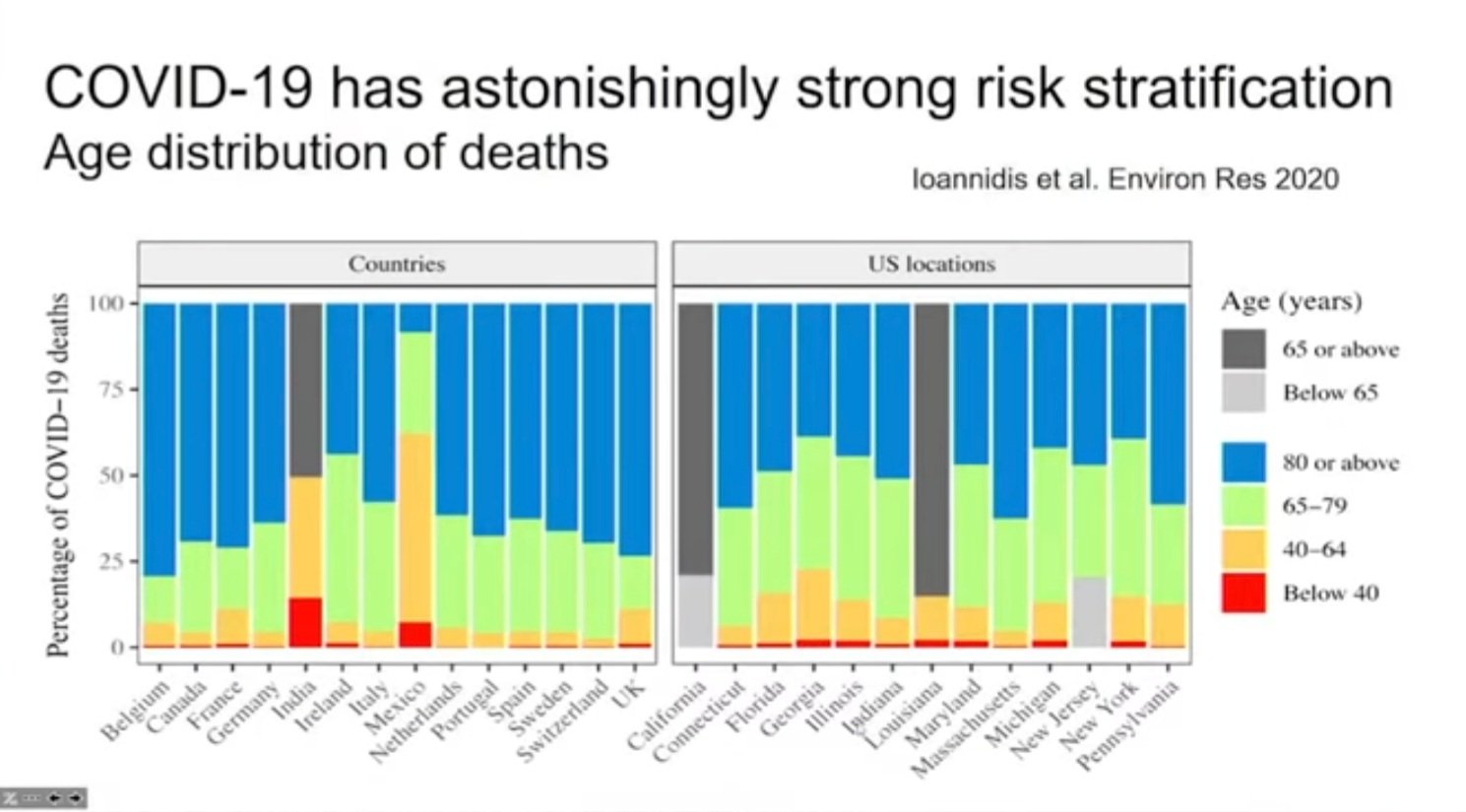
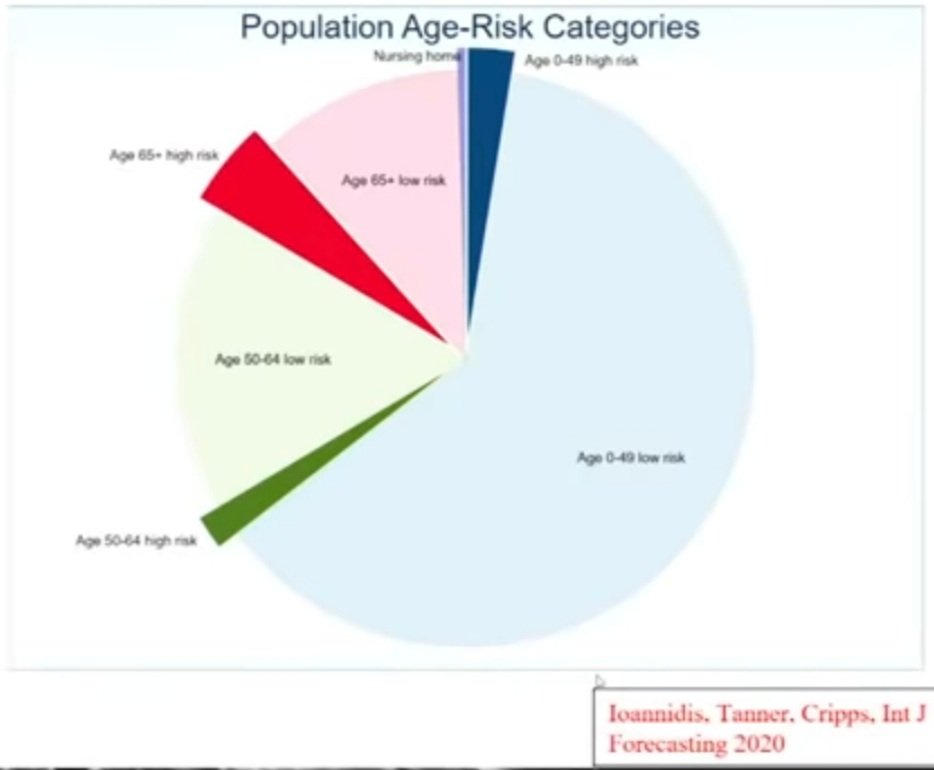

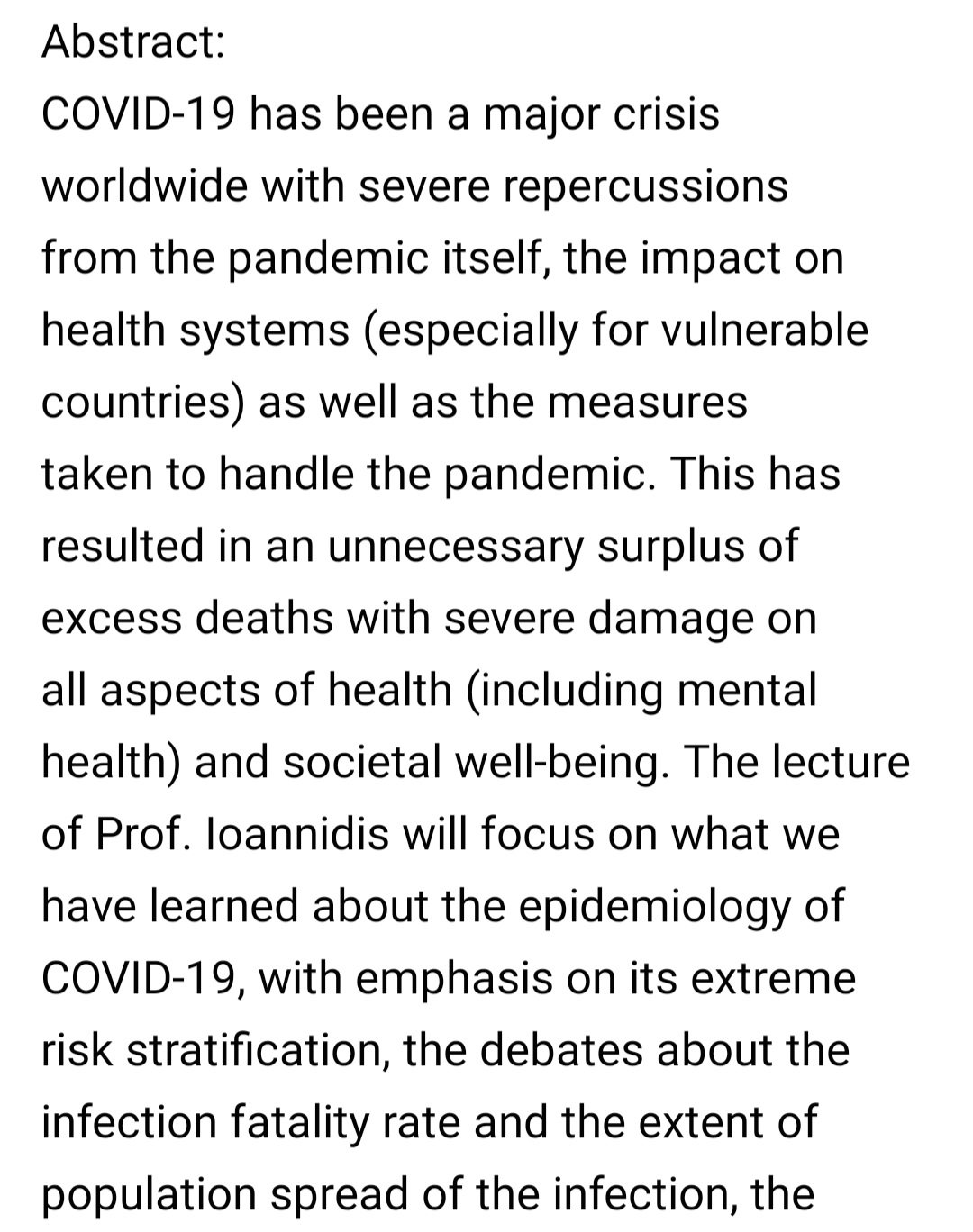
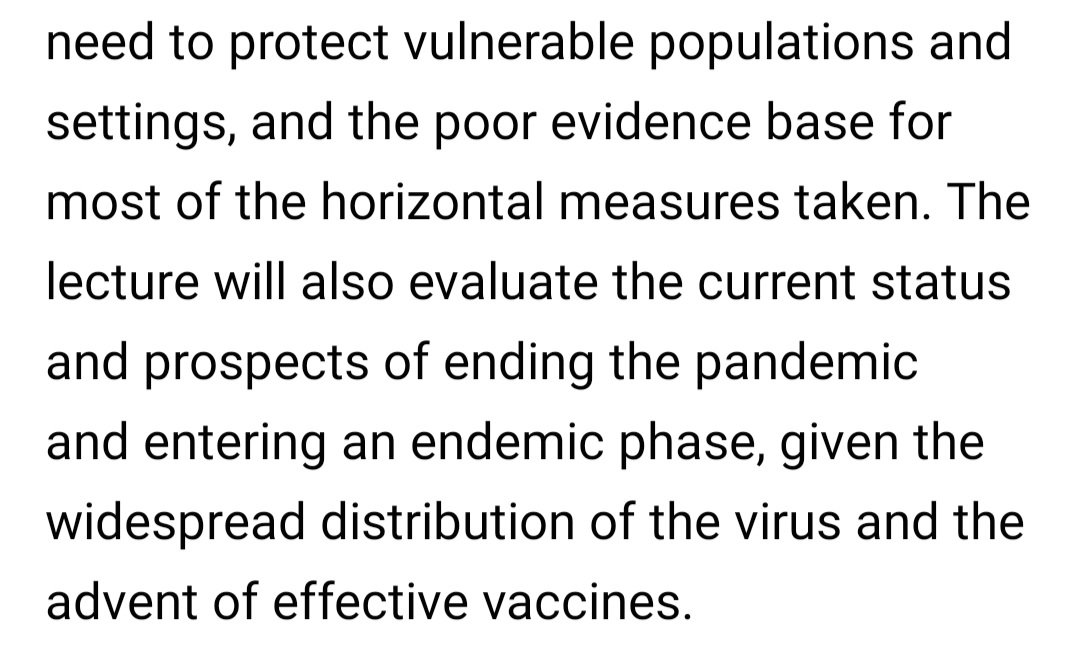
CLICK HERE FOR RESEARCH PRESENTATION (or see shorter version posted below) https://youtu.be/B_ehqHQOBO0





This is an edited (30 minute) version of the entire (2 hour) presentation (posted above).
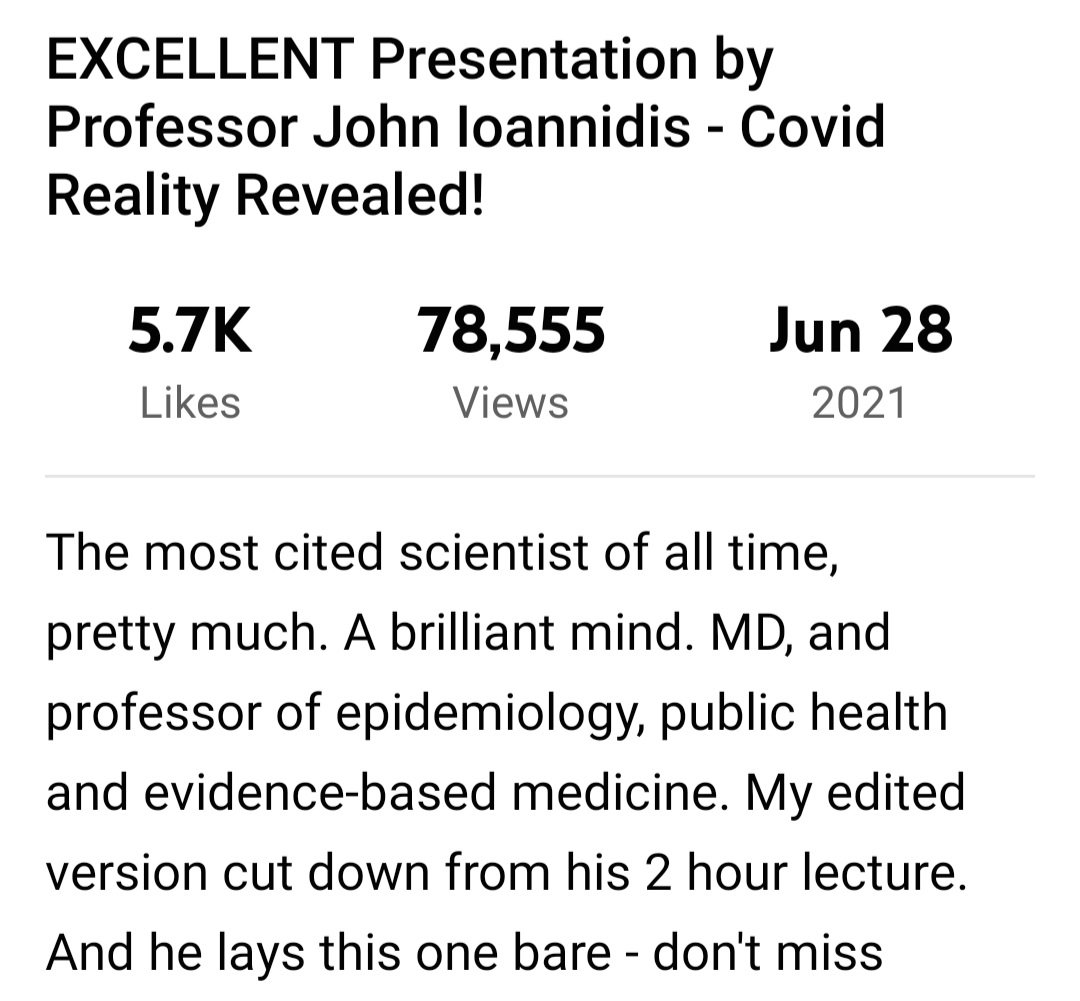
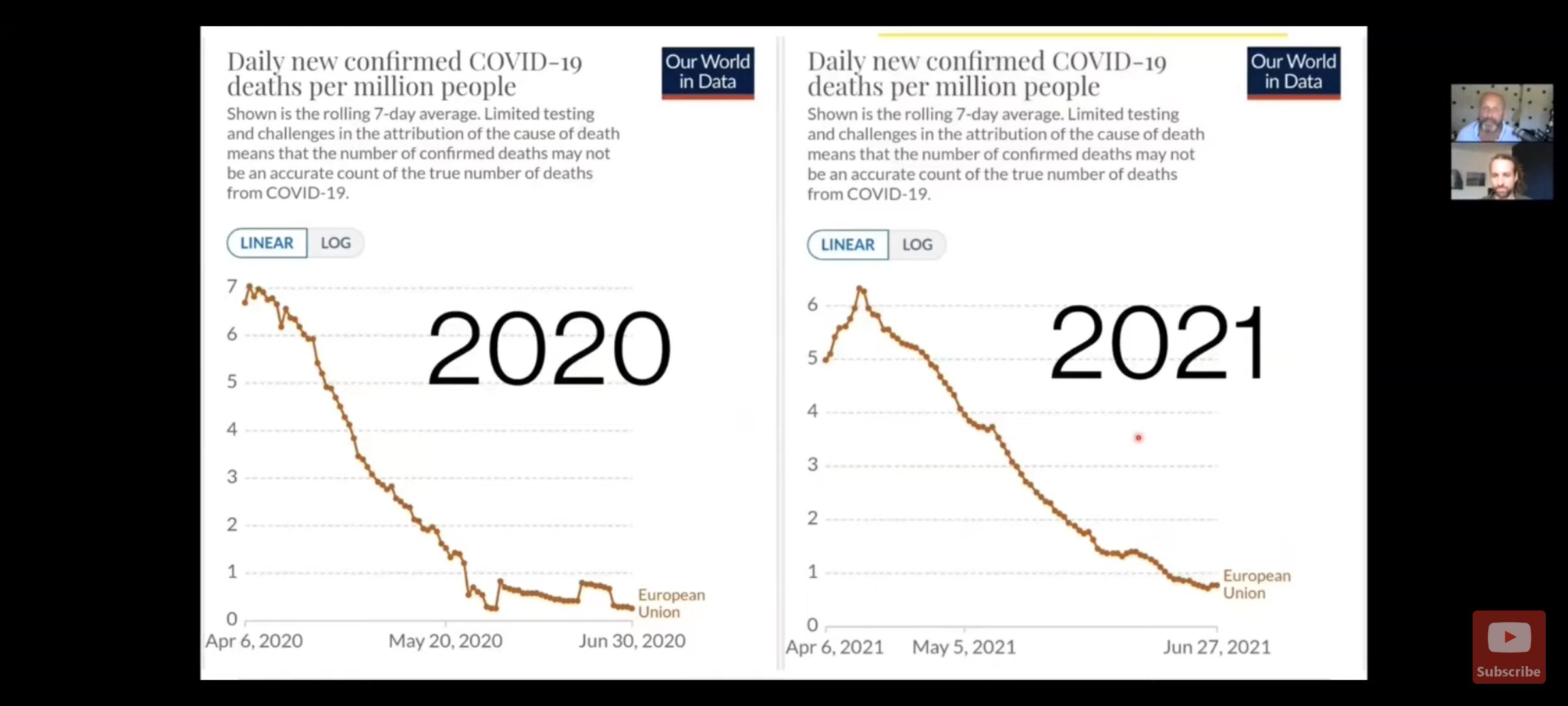
https://youtu.be/mJ-aYwiE22M
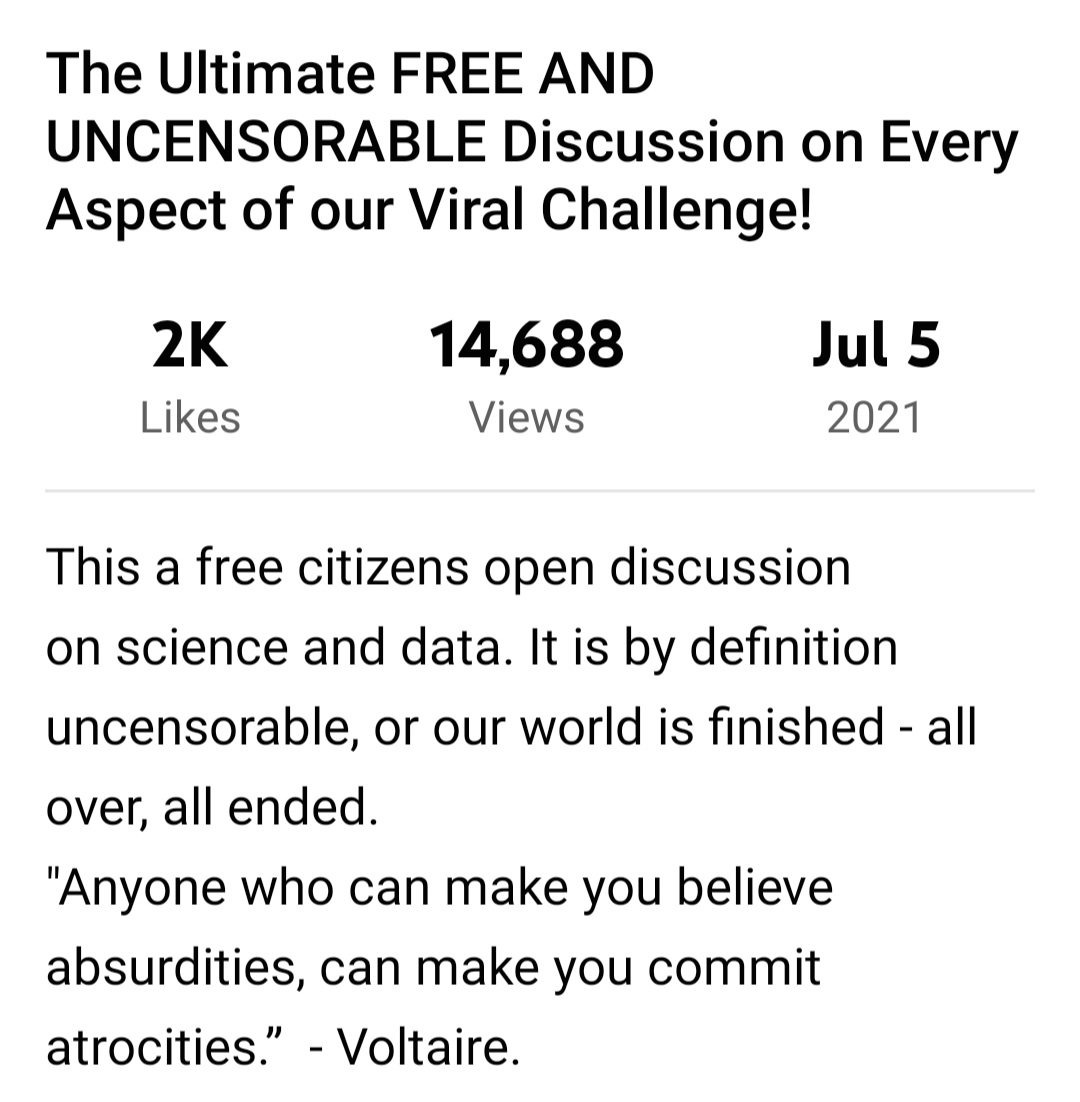
SHOULD THIS VIDEO BE CENSORED CONSIDER THIS INTERVIEW:
Ep123 Professor Gordon Lauc – Official Pandemic Advisor to Croatian Government – Revelations!
https://youtu.be/kkVIMZQrqEM
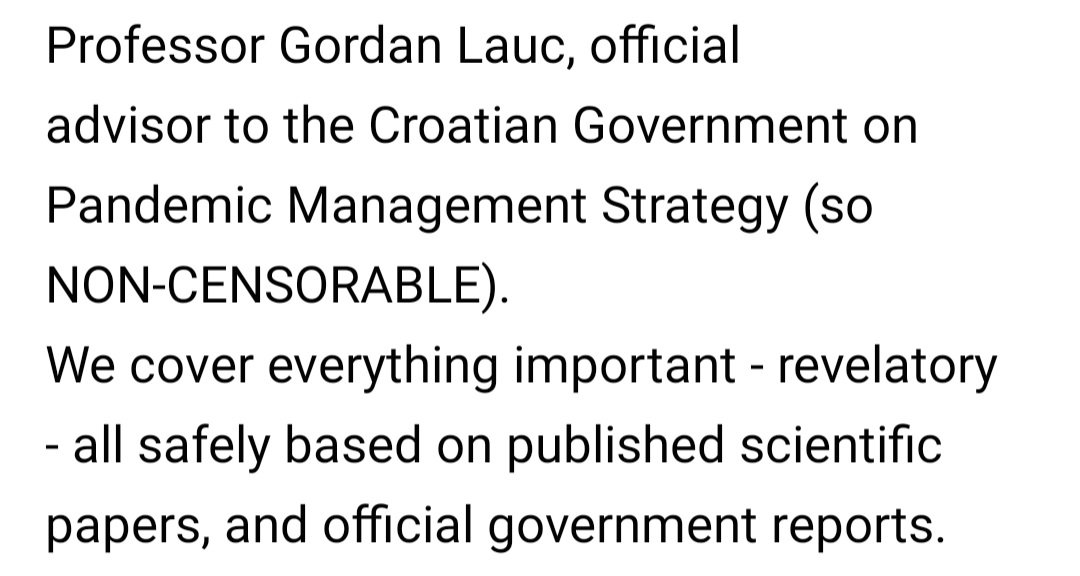

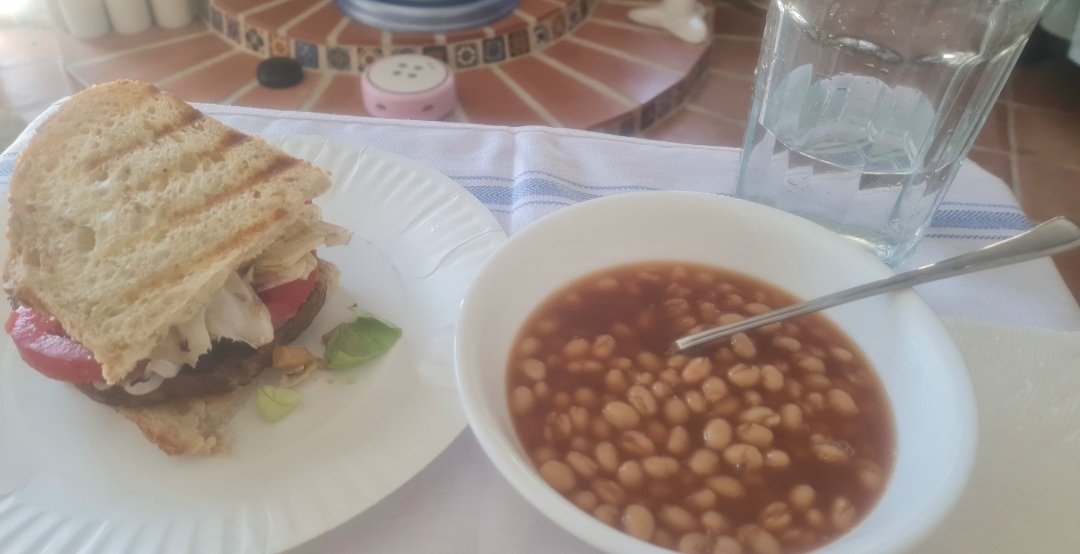
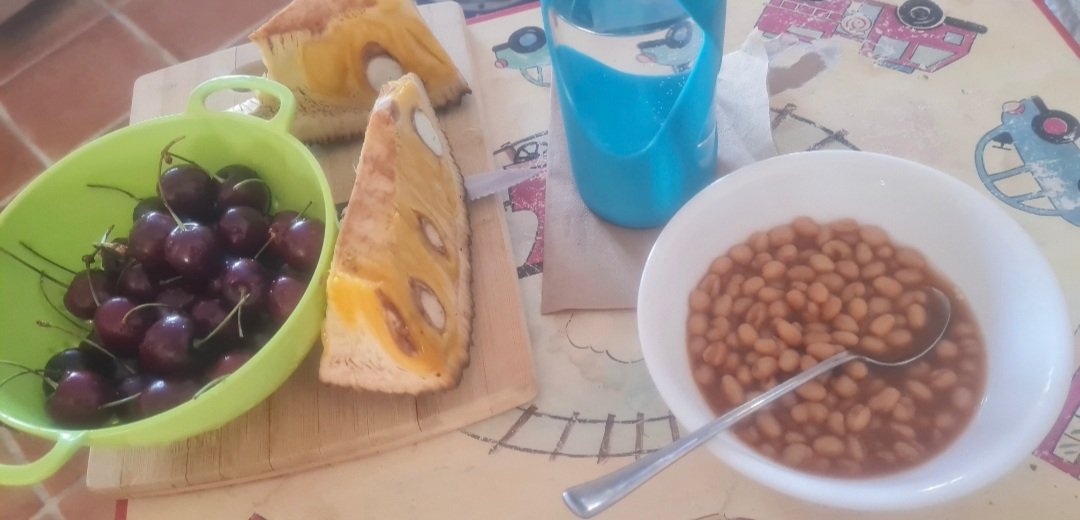
EXERCISE:
* Jog 5k outdoors
* Face exercise
WATER:
(3) × (25) = 75 oz
EATS:
* oatmeal w/ banana, blueberries, walnut, almond milk, blackstrap XL-molasses
* leftover tom kha coconut soup
* veggie burger, bbq beans, plain sparkling water
* few french XL-fries
* cherries, jackfruit, remaining bbq beans
* serving of coconut milk ice XL-cream
*** SUN HAS SET ***
Cmmt: XL indicates uncommon extravagantly luscious food
https://youtu.be/zp_zNSEW1wc
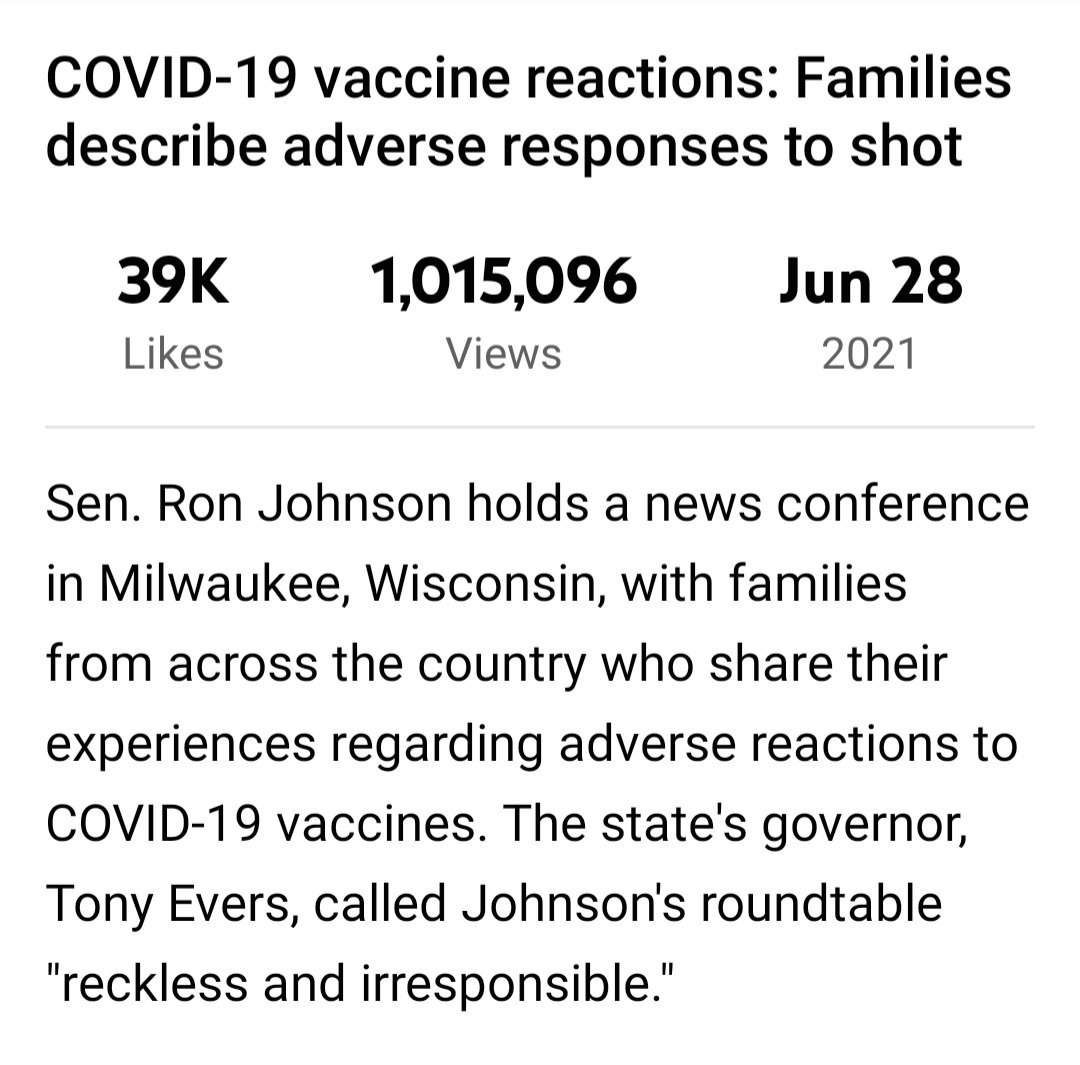
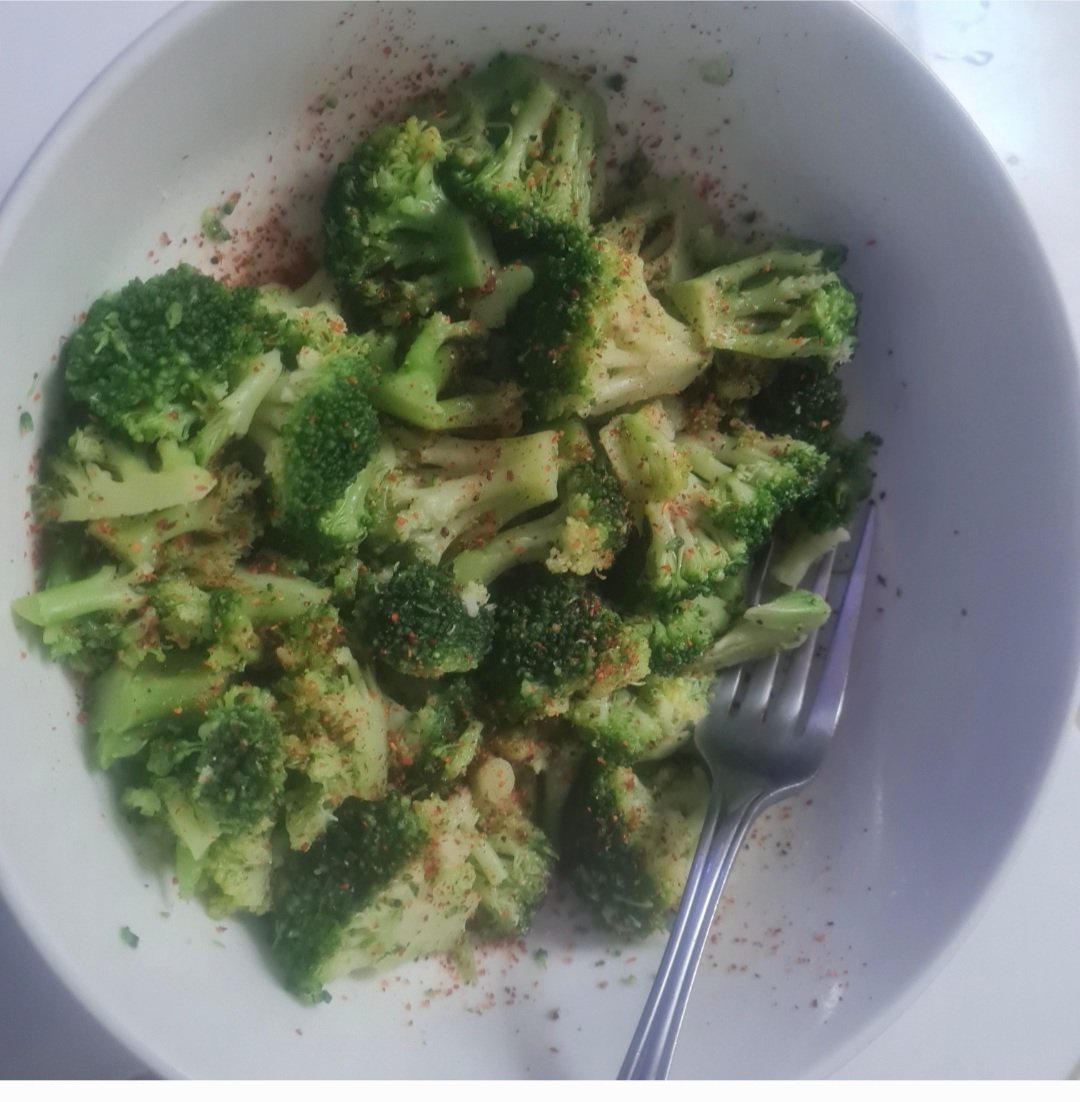
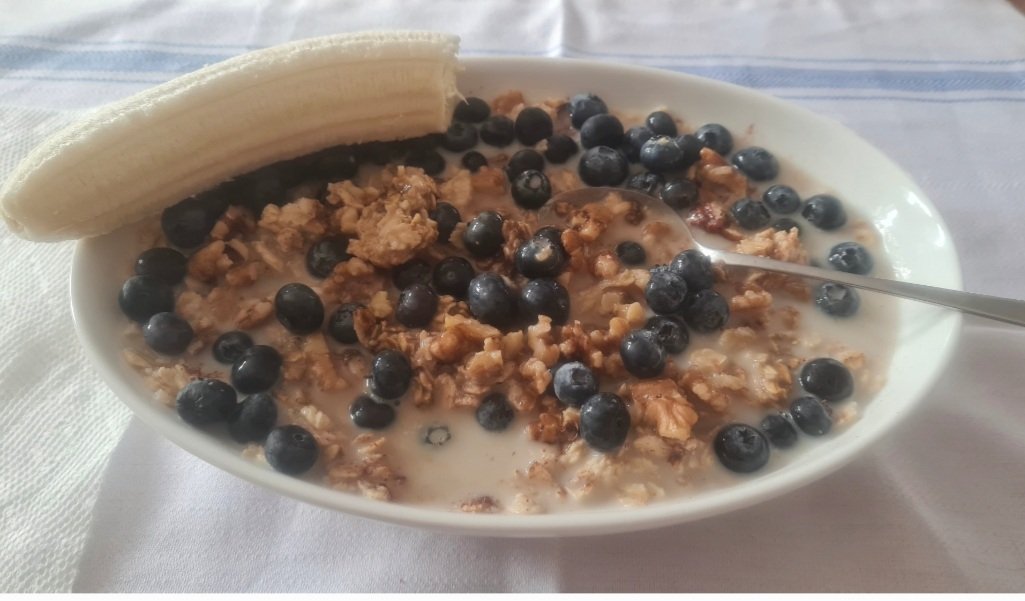
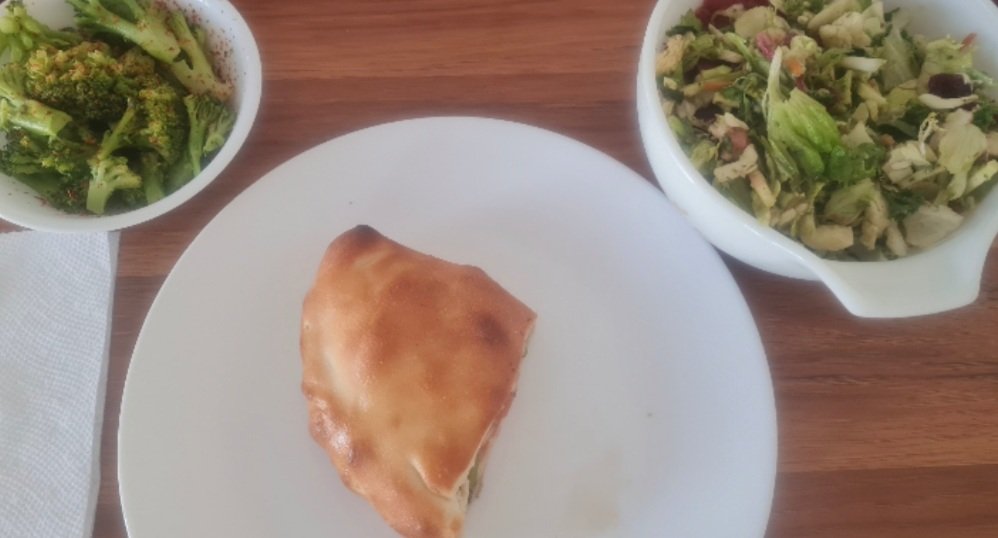
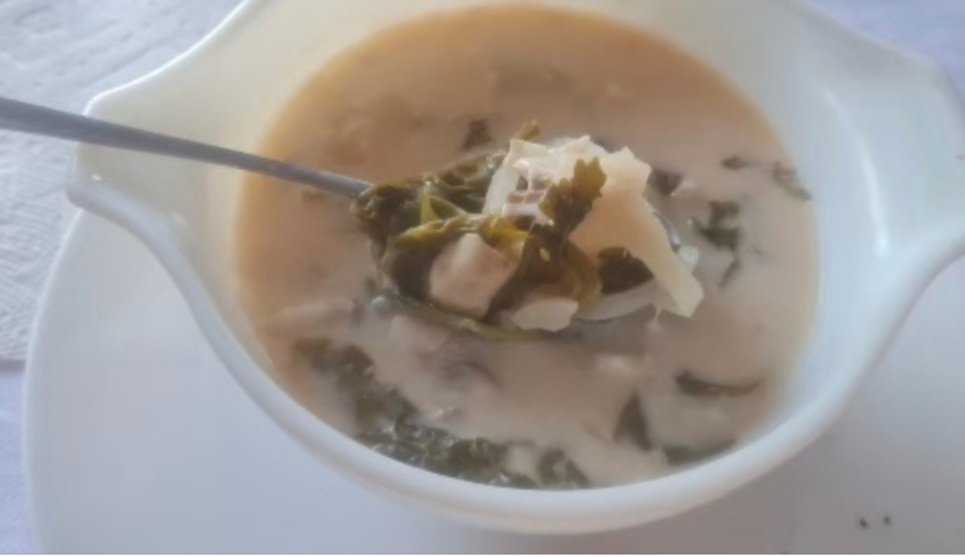
EXERCISE:
* Lift chest & biceps
* Vibrating table workout
* Mini-trampoline workout
WATER:
(3) × (25) = 75 oz
EATS:
* steamed broccoli
* oatmeal w/ banana, blueberries, walnut, almond milk, blackstrap XL-molasses
* vegan calzone, gorilla salad & more steamed broccoli
* peanutbutter & XL-jelly openface toast
* tom kha (coconut) soup
*** SUN HAS SET ***
Cmmt: XL indicates uncommon extravagantly luscious food
For more info: https://trialsitenews.com/https://trialsitenews.com/
Scrutinize deaths attributed to COVID-19 vaccines?
Defenders of a controversial study on the risk-benefit ratio of COVID-19 vaccines are calling hypocrisy on a medical journal for retracting the paper a week after publishing it, following the resignations of several journal editors in protest.
In a Friday retraction notice in the journal Vaccines, the editor in chief and “several” editorial board members said the paper’s authors were not able to “satisfactorily” answer claims that they conflated correlation with causation.
Analyzing data from the Netherlands Pharmacovigilance Centre, known as LAREB, the paper’s authors estimated COVID-19 vaccines take two lives for every three they save. The country leads Europe in vaccine adverse-reaction reporting.
Authors Harald Walach, Rainer Klement and Wouter Aukema challenged criticism from Eugene van Puijenbroek, who leads LAREB’s scientific department, that they had misused its data.
“This starts a long-overdue debate on how to gauge the safety of COVID-19 vaccines,” they wrote in a statement provided to Retraction Watch Thursday.
“Currently we only have association, we agree, and we never said anything else. But the same is true with fatalities as consequences of SARS-CoV2-infections [sic],” which are “rarely vetted by autopsy or second opinion” to confirm they were caused by the novel coronavirus, rather than incidental to infection.
Brown University epidemiologist Andrew Bostom wasn’t impressed by the journal’s “baloney” explanation for the retraction, either. “The [vaccine] deaths are as causally related as C19 deaths which allow for any positive test within 30-60 days of a death from any cause to be tallied as a C19 death,” he wrote in a Twitter message to Just the News.
Bostom pointed to a June study, not yet peer-reviewed, of a sample of deaths in the U.S. Vaccine Adverse Events Reporting System reported through April. The sample was limited to people who got early vaccinations, primarily elderly or those with “significant health conditions.”
Researchers at the University of London and New Zealand’s Massey University found that they could rule out “vaccine reaction” as a contributing factor in just 14% of deaths. “Contrary to claims that most of these reports are made by lay-people and are hence clinically unreliable, we identified health service employees as the reporter in at least 67%,” they wrote
Correlation versus causation is also an ongoing issue in research on the effectiveness of masks in mitigating the spread of COVID-19. Commenters immediately challenged a Thursday report in MedPage Today on a study that purported to find masks effective in stopping in-school transmission, but had no control group of mask-optional schools.
‘Largest vaccination experiment in history of medicine’
The journal Vaccines was under internal pressure to retract the paper almost immediately. Two of its editors, virologist Florian Krammer and immunologist Katie Ewer, publicly announced their resignations on Twitter within three days of publication.
Science magazine reported four more resignations from Vaccines by July 1, including the journal’s founding editor in chief. Ewer made the same correlation-versus-causation argument and complained that the paper was “being used by anti-vaxxers and COVID-19-deniers as evidence that COVID-19 vaccines are not safe.”
Only one of the three peer reviewers was identified by name, Anne Ulrich, chair of biochemistry at the Karlsruhe Institute of Technology in Germany.
Her review said the authors made “plausible and convincing arguments” for why they chose the Dutch adverse-reaction data, and their analysis was “performed responsibly … without methodological flaws” and with “necessary caveats.”
After controversy, Ulrich told Science the analysis was done “responsibly and without flaws.” (One of the anonymous reviewers was confused why the authors compared the Dutch adverse-reaction data with “number needed to vaccinate” data from a large Israeli field study.)
The journal’s retraction said the paper’s authors reached “incorrect and distorted conclusions” by ignoring the caveats in LAREB, the Dutch reporting system.
Both “healthcare professionals and patients are invited to report suspicions of adverse events that may be associated with vaccination,” but “a causal relation” is not needed. It also said the paper falsely claimed “fatal cases were certified by medical specialists.”
After the journal announced the investigation, Aukema, one of the authors, tweeted that the Dutch reporting system was unlike most in the EU by “timely reporting” adverse reactions to the European Medicines Agency, “so theirs is the best data available.”
According to Science, LAREB official van Puijenbroek wrote to Vaccines the day after the paper’s publication, making the same arguments that appeared in the retraction. He did not respond to an email from Just the News asking for that message, which does not appear to be posted anywhere.
In the statement the paper’s authors gave Retraction Watch, they challenged van Puijenbroek’s characterization of the register’s data.
Just this spring, the LAREB official told the journal Regulatory Science that the Dutch register received more than half of its 34,000 adverse-reaction drug reports in 2019 from “marketing authorisation holders.” The rest came from “healthcare professionals and patients.”
The majority of reports came from parties who “by law, are required to report,” and LAREB says it checks all submissions for “completeness and possible ambiguities,” requesting additional information if necessary. If it’s treating COVID-19 vaccine reports differently, it should say so, the authors wrote.
Treating all deaths following COVID-19 infection as virus-caused deaths, which created a staggering official death toll, has given rise to “an unprecedented sloppy regulation process” that allowed the novel mRNA vaccine technology to be widely tested in humans for the first time, they wrote.
Van Puijenbroek is tacitly arguing that “the largest vaccination experiment in the history of medicine cannot be assessed for safety and unforeseeable toxicities,” but the authors believe “it is mandatory” to use existing “imperfect data” to gauge vaccine safety.
To conclusively end this debate, governments or “university consortia” should set up a transparent “systematic observational post-marketing surveillance study” across a large group of vaccinated people, they said.